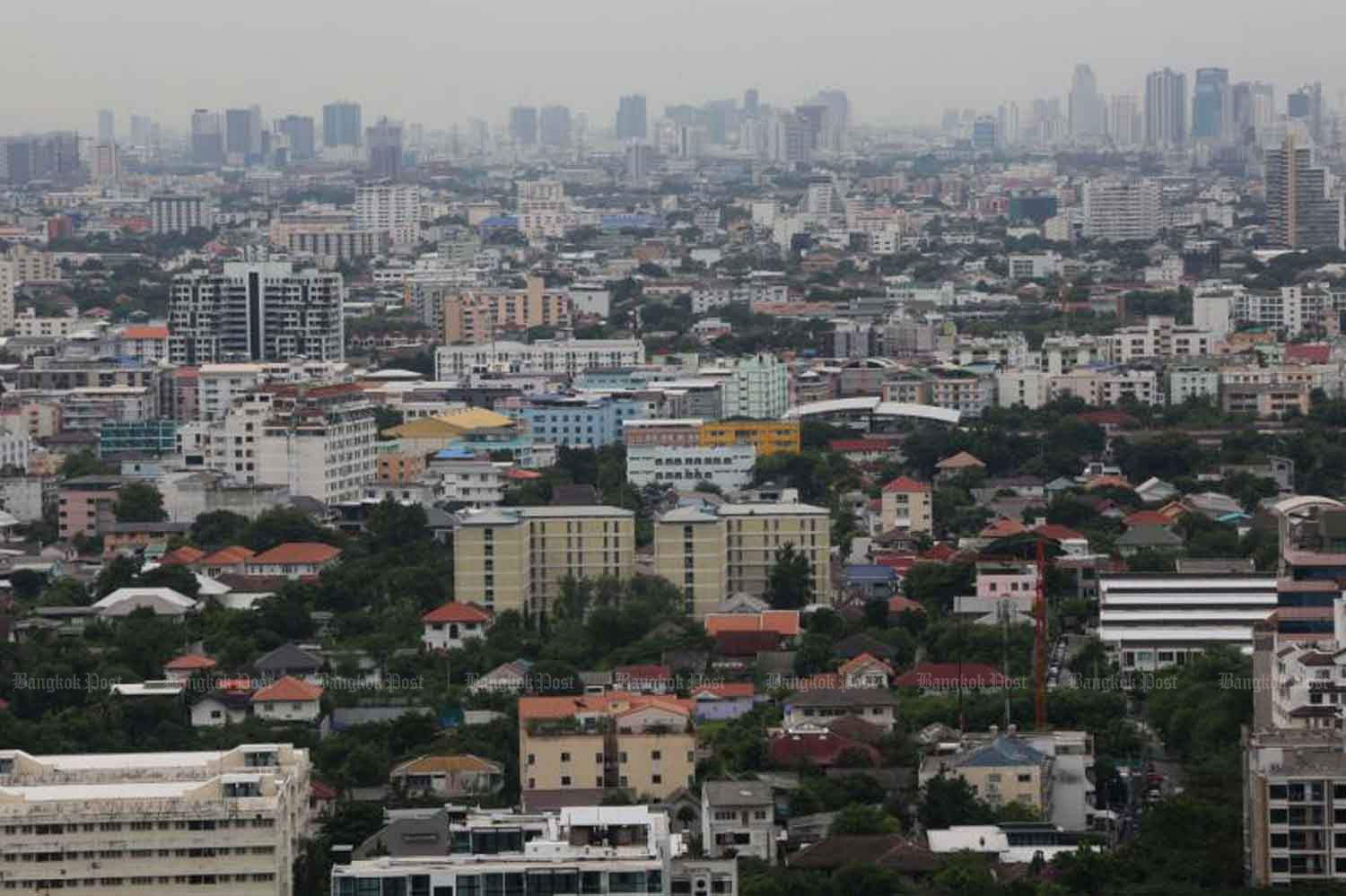
Infrastructure, including a new expressway, along with urbanisation driven by mass transit expansion and market competition pushed Bangkok land prices up by as much as 75% in recent years.
Saenphin Sukhee, chief executive of residential developer Frasers Property Home (Thailand), said land prices in Bangkok continued to grow despite the pandemic with an average increase of 70-75% during 2020-22.
"The new expressway caused land prices to almost double," he said. "In some locations such as Hathairat Road, the price more than tripled from 2-3 million baht per rai to 10 million baht after the completion of the expressway on Chatu Chot Road."

According to the company's land acquisition and business development departments, the new expressway pushed land prices in western Bangkok up by 81% on average, led by Rama 2-Bang Bon with a rise of 98%. Prices in Suksawat-Pracha Uthit grew by 63%.
Construction of infrastructure projects linking Bangkok to western provinces drove land prices in the Pin Klao-Ratchaphruek and Rattanathibet-Chaiyaphruek areas to grow 64-65%.
In Kaset-Ram Intra and Watcharapol-Sai Mai, land prices rose 60% and 44%, respectively, due to urbanisation stemming from expansion of the Pink Line mass transit.
Land prices in eastern Bangkok jumped by 92% on average as competition among residential developers was high. The highest increase was in Ramkhamhaeng-On Nut which soared by 138%.

It was followed by Bang Na-Ring Road with an increase of 98% and Theparak-Bang Phli with a growth of 39%.
"Actual prices of land have risen beyond appraisal land prices," Mr Saenphin said. "Financial institutions cannot catch up with the rise. As a result, we got project loans lower than they should."
The Real Estate Information Center (REIC) on Friday reported the price index of vacant land in Greater Bangkok in the fourth quarter last year at 381.4 which was an increase of 34% from 284.7 in the same quarter of 2019.
Compared with the fourth quarter of 2021, it increased 12.5% and rose 3.4% from the third quarter of 2022.
"Prices of vacant land kept increasing but the rises remained lower than the five-year pre-pandemic average of 14.8% year-on-year and 4.1% quarter-on-quarter during 2015-19," said REIC acting director-general Vichai Viratkapan.
He said the lower growth was derived from the global economic slowdown due to the pandemic and the Russia-Ukraine war and the normal collection of the land and building tax in 2021-22.

As new land appraisal prices which will see an average increase of 8% were postponed from 2021 to this year, some landlords released their land for sale ahead of the new rate to minimise costs from the land and building tax.
According to the REIC, the top three zones with the highest price increase for vacant land in the fourth quarter of 2022 remained Bang Phli-Bang Bo-Bang Sao Thong, Muang Nonthaburi-Pak Kret and Muang Pathum Thani-Lat Lum Kaew-Sam Kok like in the third quarter.
"Land in outer Bangkok locations saw a rising change in prices as land prices remained low, viable to develop low-rise houses at affordable prices for mass market demand," Mr Vichai said.
The mass transit lines which saw the highest year-on-year increase in land price index with 16.6% were MRT with an index of 508.3, with Bang Sue securing the highest increase.
The increase of 16.6% also included the Dark Red Line from Bang Sue to Hua Lamphong and BTS from Mo Chit-Saphan Mai-Ku Kot.